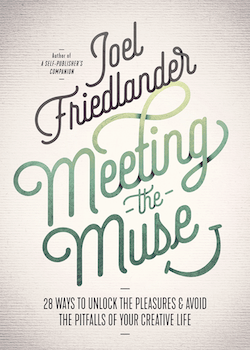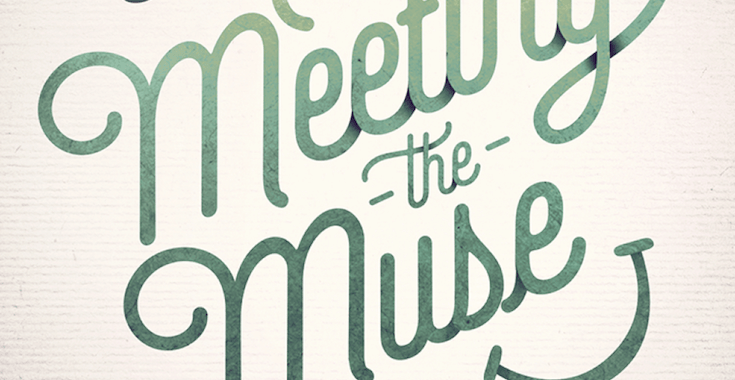I’m getting ready to publish a new book on creativity called Meeting the Muse: 28 Ways to Unlock the Pleasures & Avoid the Pitfalls of Your Creative Life.
This book is not about book publishing, but more about the motives that move us to be creative, as all writers and authors are.
Over my life I’ve had many friends, colleagues, and clients who are creative professionals, and my desire to write this book was, perhaps, to save some younger artists and writers from some of the bad mindsets, wrong thinking, and blocked attempts at creativity.
As the subtitle says, there are 28 separate short chapters in the book, each with a topic statement followed by a discussion of the theme from the topic. Each ends with a quote from someone you might recognize.
To give you a feeling for what this book will be like, here is the first of the 28 sections, with a look at the current cover for the book, designed by James Egan of Bookfly Design. Editing by Sharon Goldinger of PeopleSpeak.
I hope you find it useful. Publication date is not set, but if you’re on my mailing list you’ll find out about it first, along with any “goodies” that accompany the launch.
Do you think much about your own creativity, and how unique your own life experiences are? I’d love to hear about it in the comments.
1. You are absolutely unique, and what you have to offer the world cannot possibly be duplicated by anyone else.
Our individuality is the basis for all creativity. For some reason, you and I have a drive to create, to imagine new things, new worlds, new ideas and make them real. Unmistakably, this drive comes from somewhere inside us. But part of the problem we face is that our inner lives are largely unknowable, even to us.
Because of the way we’re made, only a small bit of what we experience makes it into our active awareness. The rest—most of what we can sense about the world—gets submerged under the moment-to-moment demands of our lives.
 We take in a huge amount that never gets into our conscious mind. Unrealized perceptions, intuitive connections, unspoken insights—these all become part of an unknown country, our own unconscious—the “dark side of the moon.”
We take in a huge amount that never gets into our conscious mind. Unrealized perceptions, intuitive connections, unspoken insights—these all become part of an unknown country, our own unconscious—the “dark side of the moon.”
This is our curse—and our salvation, because in that underground world creativity runs strong, clear, and constant, even if it’s largely unknown. It is ready to come to the surface to be a source of inspiration for your work, for yourself, for your mission here on Earth, if you’re open to it.
We know each of us is unique. Our fingerprints are unique, and the irises of our eyes, too. But that’s simply where our uniqueness starts. Every one of us has a different genetic inheritance from the complex mixing of the DNA of countless generations of ancestors (except those of you with an identical sibling).
Starting there, with our unique genetics, we each embark on our own journey through life, with families uniquely ours. And don’t forget, each of our parents is the result of a similarly complex process. And their parents before them. Think about how much complexity we have been imbued with due to the cascade of generations before us.
So, rest assured, your mix of genetics and personal experience is completely unique to you. And when you add the element of time and realize we ourselves are subject to the laws of constant change, you can see how any moment you are experiencing is a moment only you can experience. In many ways, our art is simply the report we send back of how the world looks to us at any unique moment.
Treasure the uniqueness of now: it will never come again. Even if you try to recapture it, the light will be different, what you ate last night will be different, the scene will have changed, and, above all, you will be different because you have no choice but to keep changing.
Sink into this moment; it is where we truly come alive.
“The trick to creativity, if there is a single useful thing to say about it, is to identify your own peculiar talent and then to settle down to work with it for a good long time.”—Stephen Jay Gould



